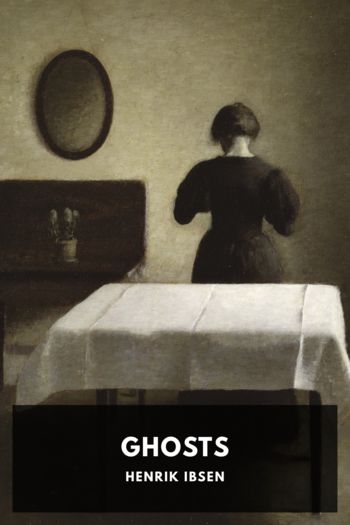Murderous by David Hickson (world of reading txt) 📗

- Author: David Hickson
Book online «Murderous by David Hickson (world of reading txt) 📗». Author David Hickson
When Sara had left in search of another dishcloth to deal with Fehrson’s syrup problem, Khanyi said, “We don’t think it’s the same killers. The police have a handwriting expert looking at it, but it seems unlikely. The point is that there is a connection with the killings that took place in the ’90s.”
I tried the coffee, which was a mistake. It tasted as if it had been brewed several days ago and had been corroding a metallic container since then.
“Do you want to tell me why I am here?” I said. “It’s been good fun being hauled out of bed at the crack of dawn and flown here to witness the tragedy first-hand, but perhaps you would like to get to the point?”
“I will leave that to Khanyisile,” said Fehrson. “We are going through a transition; a transfer of leadership. The balance of power is shifting. I am becoming more of a figurehead. Khanyisile will be your contact on this.”
“My contact? You’re asking me to do something? Officially?”
Khanyi showed me all her teeth. With the high cheekbones and wide eyes, it was a powerful move.
“Not official,” she said, “but it is something uniquely suited to your skills.”
“The same skills that rendered me unemployable?” I asked. Those were the words used by Fehrson at the end of my brief tenure with the Department, and I couldn’t resist twisting the knife a little.
Khanyi did the thing with her teeth again and looked down to her folder of photos like a blushing bride about to confess. “It’s a simple task that we need you for,” she said.
“Not payroll kind of official then,” I suggested. “We’re talking more gratitude level than generous stipend level.”
“Khanyisile is your contact on this,” said Fehrson again, as if that absolved him of all blame. Sara returned with a fresh dishcloth and stood at the table while Fehrson fastidiously wiped each of his fingers. She gazed out of the window glumly, oblivious to the fact we might want to engage in private conversation.
“They’ll be fighting before the day’s out,” said Sara suddenly. She was watching two groups of youths on the street outside, clustered together on racially segregated lines. There was no indication of any aggression between them, but the way they turned inward as they conversed, and the challenging glances they exchanged revealed the tension between them.
“Couple of days ago they were jolling about, kicking balls, laughing, joking together. That’s what this does.”
“Tensions will ease,” said Fehrson. “Regardless of race, this is a shared tragedy. The town will come together, you will see.”
Sara shook her head and poured more of the black sludge into our bowls. “I told ma,” she said. “We close early today, put down the shutters. We don’t want our windows broken.”
“I am sure they wouldn’t do that,” said Fehrson, looking out at the shuffling youths, but his voice held little conviction.
“I’ll get your check,” said Sara with finality. The sight of the troubled youths had accelerated her plans for closing for the day. She left us, taking the pot of sludge with her.
“Let us leave this town of little hope,” said Fehrson. Then he turned to me as he remembered there was a foreigner present. “That is what it means,” he added helpfully. “Minhoop: little hope.”
“Yes,” I said. “Given that name by the original settlers who gave up hope of finding anything better as they travelled north in search of better lands.”
“They were running from the British,” said Fehrson, accusingly. “Driven out by the ridiculous restrictions the British imposed on them.”
“Ridiculous restrictions?” said Khanyi. “Such as not allowing them to enslave the native population?” If her hair had not been braided, we would have seen her hackles rise.
“Nonsense,” said Fehrson. “The Great Trek of the Afrikaans people started before the Brits abolished slavery. It had nothing to do with slavery. Goodness, the ground floor of the Castle in Cape Town was given over to housing the slaves of the British garrison. No, no, slavery wasn’t the problem.”
He gave Khanyi a glare for being so obstreperous, but the glare faltered as he realised there might have been weaknesses in his argument.
“Slavery wasn’t a problem, except perhaps for the slaves,” said Khanyi, who was not going to give ground. “It was a problem for them.” Khanyi might have started at the Department as a lowly secretary, but she had been bright enough to discover the legislation that stipulated the amount of educational funding available to staff, and now had a couple of university degrees to her name, and the force of personality to apply them.
“It was two hundred years ago,” said Fehrson, and he pushed the remains of his waffle away lest the blame for that disaster be levelled at him as well.
“Nevertheless, Father,” said Khanyi. “It’s inappropriate to glorify the Afrikaans ‘trekkers’. Just because thirty of their descendants were killed here yesterday.”
Fehrson shuffled the sugar pot and salt shaker about on the table, and we endured a sulky silence for a moment. Then he looked up at Khanyi with innocent blue eyes.
“My dear,” he said in his kindly uncle voice, “I am not glorifying them. You know I would not do that, Khanyisile.” He bestowed a parental smile on her, then turned to me and provided the subtitles. “There are currents that ride beneath the surface of this country, young man. Dangerous currents with a powerful undertow. This whole dreadful business is the kind of thing that results from that. Khanyisile here thinks I am too old and set in my ways to keep an open mind about these things. That is why she has insisted we come to you.” He sniffed, then added. “My mind is open, despite my advanced age.”
He gazed at me





Comments (0)